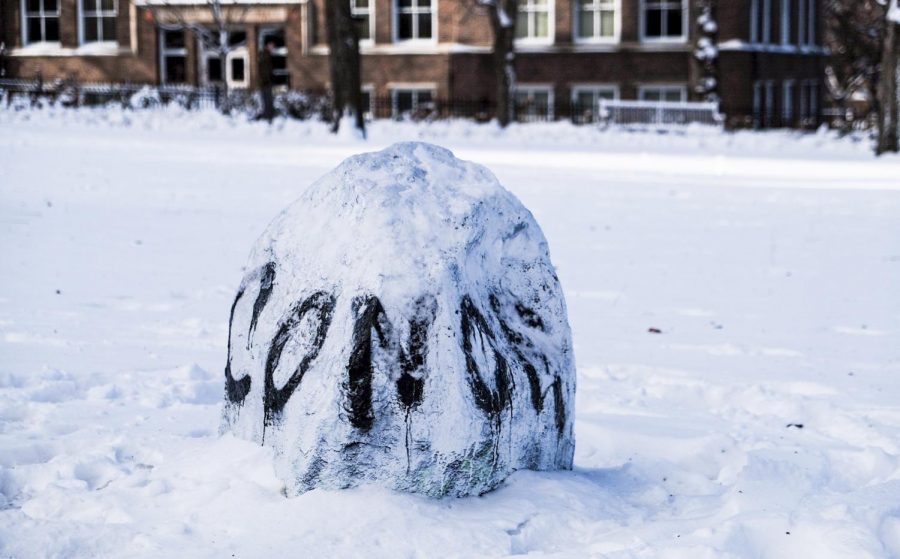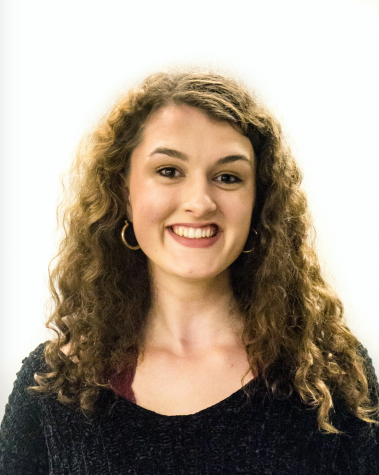Friends remember Conor Tomlin for time at Mac, love of home
December 5, 2019
On the evening of Tuesday, Nov. 12, Conor Tomlin, a member of the class of 2021, unexpectedly died. More than a week later, on Nov. 20, Asst. Dean and College Chaplain Rev. Kelly Stone sent an email notifying the campus community that Tomlin’s cause of death was an accidental overdose.
From Cape Town, South Africa, Tomlin played rugby and studied computer science at Macalester. Known for his charisma and love of wildlife, he will be deeply missed by his family and friends.
Zoraiz Paracha ’21 met Tomlin during their first week at Macalester as part of the Ametrica pre-orientation program hosted by International Student Programs.
“I think he was one of the most genuine, adoring, loving, caring, real people I’ve met at Macalester,” Paracha said. “He was a person who embodied brotherhood [and] camaraderie. He was a person who you knew you could go to when you were in trouble. You knew you could talk to him about anything.”
According to his friends, Tomlin was passionate about returning to and working in wildlife preservation in his home country.
For several summers during and before college, Tomlin worked at Kruger National Park in northeastern South Africa as a park ranger, where he did wildlife photography.
“Conor was a very good photographer,” Paracha said. “He was very interested in animals, preservation [and] conservation. If you see Conor, he wouldn’t come off that way, but he was very interested in that kind of thing.”
Izzy Margulies ’21 had also been friends with Tomlin since their first week on campus. She is currently studying abroad at the University of Buenos Aires, but when she learned of Tomlin’s death, she flew back to Minnesota for a week to be with her friends and honor his memory.
“I left everything to go because I didn’t know if anyone else was going to organize [a gathering],” Margulies said.
Margulies remembers Tomlin as her best friend and said he was like a brother to her.
“We would go for drives and listen to music, we would go to Mickey’s Diner and get pancakes,” Margulies said. “I remember one time we were going to First Avenue on Halloween and he didn’t have a costume so he, Franklin [Marquette ’21] and Zoraiz all dressed up in my clothes from my closet.”
“He had an insane sense of adventure,” she continued. “He was never satisfied just doing what was asked of him. He had to make his own way. He one time pulled a lion’s baby tooth out because he pulled the shortest straw while he was working on a reserve.”
Computer science professor Lian Duan was Tomlin’s academic advisor. She also identified his intense interest in wildlife and his understanding of the threats it faces.
“My deepest memories of Conor are of the conversations we had,” Duan wrote in an email to The Mac Weekly. “He talked a lot about his love of South Africa — the safari that he worked at during high school, the lion cub he had helped raise and was worried had been killed by poachers.”
Many of Tomlin’s friends and faculty took note of how he treated those closest to him as well.
“He was bright, kind-hearted, and unfailingly polite, calling me ‘ma’am’ in every conversation we’ve had over the past 5 semesters,” Duan wrote. “He felt and loved deeply, especially towards his family and friends.”
Brendan Greenberg ’21 was close with Tomlin since his first year. Tomlin visited Greenberg in his hometown of Brooklyn, New York several times, where Greenberg saw first-hand the lasting impression Tomlin could make on people he barely knew.
“I brought him to New York and I introduced him to a lot of my friends and immediately he let them into where he was staying, made them dinner, made [them] happy,” Greenberg said.
“Literally people in New York that had never met him before, or just met him once, every time I would see them again, the first thing they’d ask me is ‘where’s Conor? When’s Conor coming back?’ He had an international effect,” he continued.
Greenberg also saw Tomlin’s passion for returning to South Africa and using his education to benefit South African communities, especially those that suffer from poverty.
“The night that he died, maybe five hours before he died, he presented to me this whole blueprint of a plan,” Greenberg said. “There’s this thing in South Africa called townships, which is the public housing — he had this whole plan to restructure them architecturally, embed community-owned businesses into the township structure and change the buildings to make them modern and give people a good living environment. That’s the person he was.”
Several of Tomlin’s friends hope that the news that he died by overdose — which his family directed the college to share with the student body — will not affect the way that the Macalester community remembers him.
“The way that people die, it influences the way that people see him, but the way that I want him to be seen [is] as someone who wanted to change the world and would have changed the world if he’d lived,” Greenberg said. “A lot of people didn’t know him like that at Macalester, because he was a back-of-the-class figure, but that’s who he was.”
“A lot of people knew Conor for vices he was involved in,” Paracha said. “And he did whatever he did… but nobody really got to know him before passing a judgment on him. Which highlights a very core issue at Macalester — passing a judgement before knowing the story.”
“You can’t be defined by how you die,” Nan Watts ’23, who dated Tomlin in the weeks before his death, said.
Going forward, his friends say that the best advice they can give to Macalester community members is to support one another.
“Check in with your friends,” Watts said. “Support your friends. That’s the thing, for me and for Brendan and all of his friends, you take time for granted and you take seeing people for granted. You never want to end on a bad note.
“If someone’s going through a rough time… especially if they brush it off, like, ‘yeah I’m fine, just going through it,’ make sure you’re extra supportive — because things can spiral super fast.”














